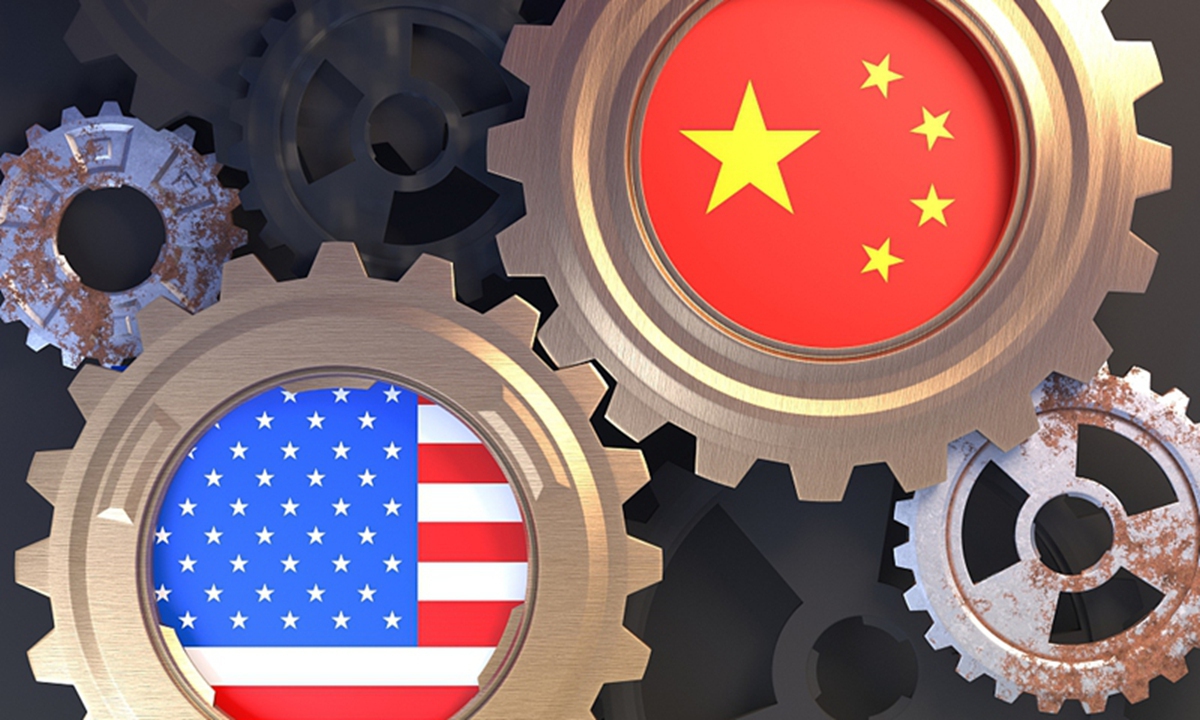
China US
A Wall Street Journal article on Monday stated that while an accelerating China is good news for fragile global growth, the direct effects of its revival on the world will likely be less pronounced compared with the past, entitled with a rather sensational headline: "Don't Count on China to Save the World Economy."It is true that after the optimization of anti-COVID-19 response, China's economic recovery has shown signs of picking up steam, bringing a rare sense of comfort to the world economy battered by the pandemic, high inflation, and geopolitical conflict, among other factors.
But linking China to saving the world economy is actually a pseudo-proposition. Never has any Western media outlet talked about the US saving the world economy, because they know well that it is a false proposition. Therefore, it is obviously malicious of the West to fabricate such a pseudo-proposition over China's economic recovery, which appears to belittle the importance of the Chinese economy to the world.
While China is the world's second largest economy, it is still a developing country. The fact that China has contributed significantly to the global economy and trade over the years is not in contradiction with China's developing quo status. It is through its own development that China has been able to contribute to the world by sharing the dividends of common development. During the 2013-21 period, China's contribution to global economic growth averaged 38.6 percent, higher than that of the Group of Seven countries combined, according to the World Bank.
Nevertheless, China's development has been facing US hegemonic containment on various fronts over recent years. For instance, in an attempt to contain China's technological development, the US not only issued export control bans cutting China off from certain semiconductor chips and technology, but also coerced the Netherlands and Japan to join the US in limiting exports of advanced chipmaking equipment to China. The US also used Xinjiang-related issues as an excuse to sanction Chinese photovoltaic companies, disrupting global solar power industrial chains. Such constraints have seriously affected China's ability to contribute more to the world through its own development.
Moreover, the US media's fabrication of an unrealistic proposition also seems like an attempt to pass the buck of its monetary blunder that has caused the global economic downturn and the recession risks.
The Federal Reserve's unlimited money printing and aggressive rate hikes have become the nightmare of many countries around the world, especially those emerging ones. The severe inflation, economic recession and other problems have already plagued many countries. Instead of talking about who can save the world, maybe a more appropriate proposition is that who should be responsible for the global economic chaos.
The Wall Street Journal report also said that "The US economy is unlikely to feel much benefit at all ... US growth might even be squeezed if China's reopening pushes up demand for energy and raises global energy prices, adding to inflationary pressures."
The rhetoric contrasts with the recent expectations of countries and multinationals toward gaining growth momentum from China's economic recovery. At a time when the rest of the world sees China's recovery as good news, it is ridiculous to see that some in the US thought the US would not benefit much from it.
After all, there is still high trading volume between the two largest economies in the world, which just broke the record in 2022. And the only explanation is that its containment policy on China, such as the "decoupling" push, has prevented the US economy from benefiting and seeking relief from the Chinese recovery. So, instead of badmouthing China's revival, US media outlets might be better off finding reasons on the US side.



